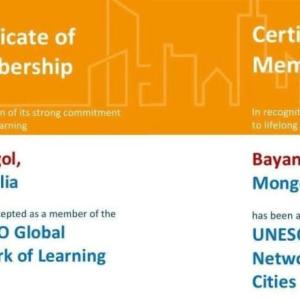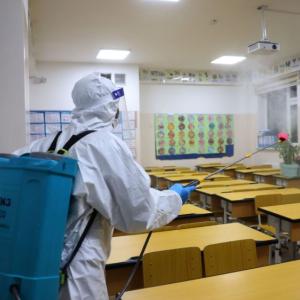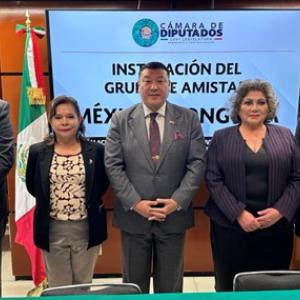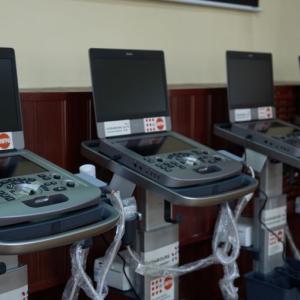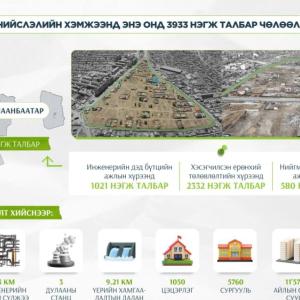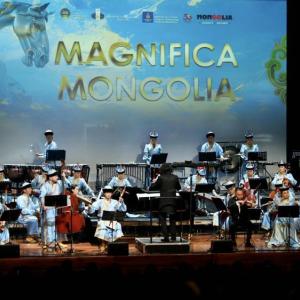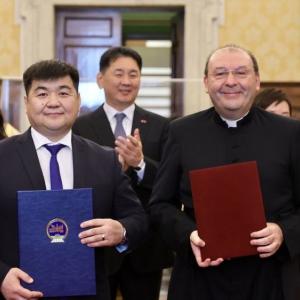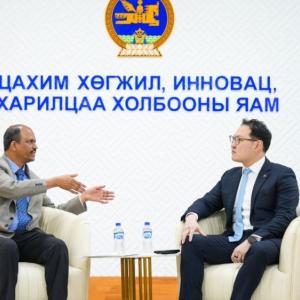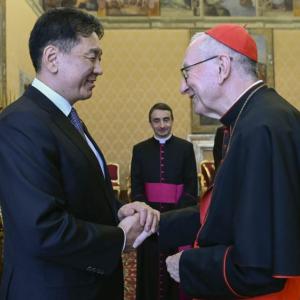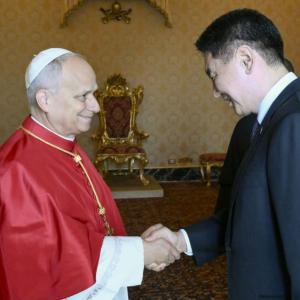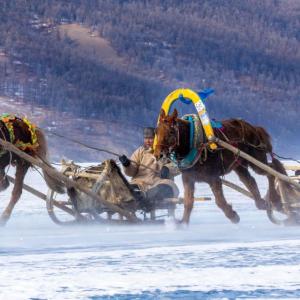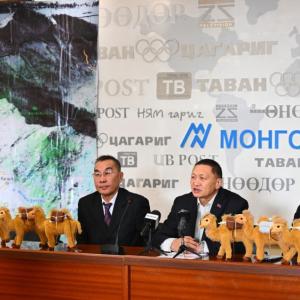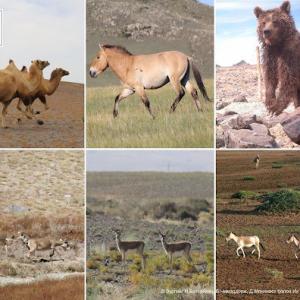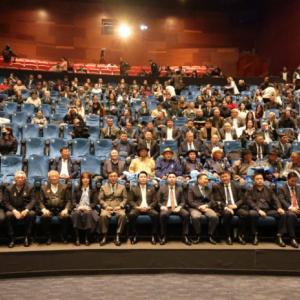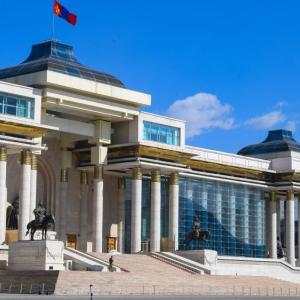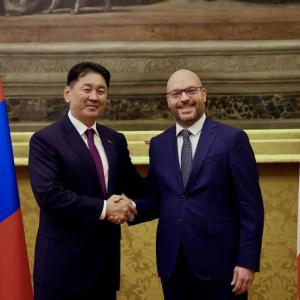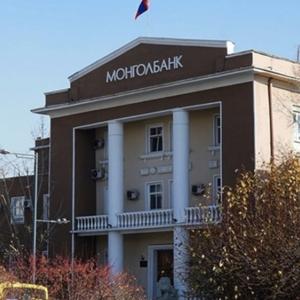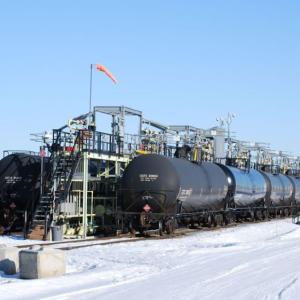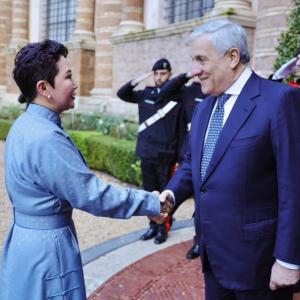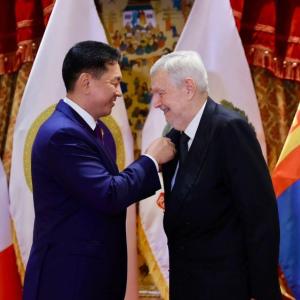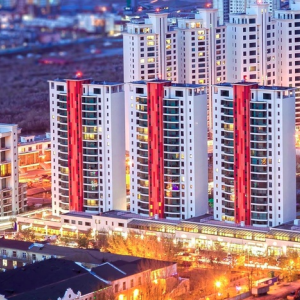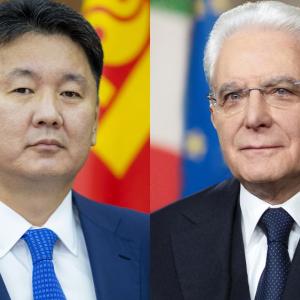Mohammad Faisal Al-Mutairi: Transportation is the main problem in the expansion of Mongolia-Kuwait trade
The Mongol Messenger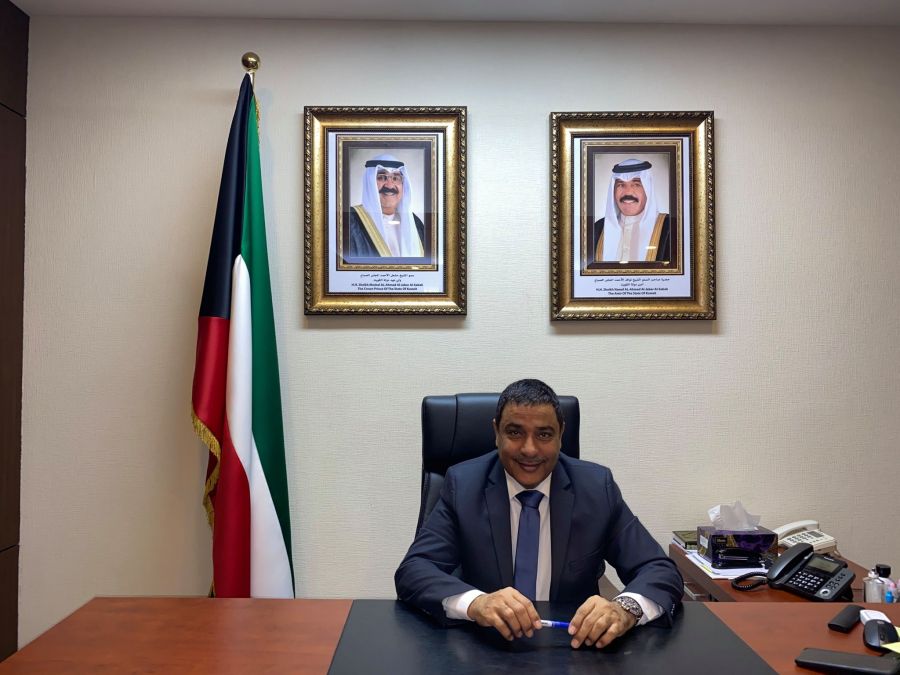
Ulaanbaatar /MONTSAME/ 2020 marked the 45th anniversary of the establishment of diplomatic relations between Mongolia and the State of Kuwait. On the occasion of the anniversary, MONTSAME agency interviewed Mr. Mohammad Faisal Al-Mutairi, Ambassador Extraordinary and Plenipotentiary of Kuwait to Mongolia, on the current state and future of relations and cooperation between the two countries.
What activities have been organized in honor of the 45th anniversary of the establishment of diplomatic relations?
-The 45th anniversary is an important milestone in bilateral relations. It is my pleasure to note that my interview with Mongolia Today magazine is part of the anniversary celebration. I avail myself of this opportunity to wish happiness, good health, prosperity, and all the best to the people of Mongolia. For the anniversary celebration, the two sides were planning a wide range of activities including further promoting each other through exhibitions and cultural days. However, due to the global pandemic, lockdowns have been imposed around the world, restricting diplomatic visits. Nevertheless, we decently marked the anniversary. On June 17, the day on which the two sides established diplomatic ties, the Ministers of Foreign Affairs of the two countries exchanged letters of congratulations. Both sides promoted each other through media. I hope Mongolians saw the interview I gave to the Mongolian National Broadcaster out lining bilateral relations and the 45th diplomatic anniversary. I have no doubt that the people of Mongolia and Kuwait remembered the anniversary in their heart and thoughts.
The Foreign Minister of Mongolia visited Kuwait in 2018 and the State Secretary of the Ministry of Foreign Affairs of Mongolia in 2020. What is the progress of the implementation of the plans agreed on during the visits?
-The plans agreed on during those visits are being undertaken smoothly. The first political consultative meeting between the Foreign Ministries of the two countries successfully took placein Ulaanbaatar city in 2019 and the second in Kuwait city in February 2020. Through our shared interests, we support one another within the United Nations and other international organizations. Mongolia is one of the countries that supported Kuwait’s nonpermanent membership in the UN Security Council in the 2017 UN Security Council election. Kuwait successfully served as a nonpermanent member of the Security Council from 2018 to 2019, putting efforts into solving international challenges.
Trade between Mongolia and Kuwait is limited to exports and imports of only a few products. Do you agree that economic cooperation, especially trade, between the two countries has not been that satisfactory? What opportunities do you see for expansion of bilateral economic cooperation? The matter was discussed during your recent meeting with Minister, Chief of Cabinet Secretariat, co-chair of Mongolia-Kuwait Intergovernmental Commission L.Oyun-Erdene. What solution do you see to this?
-I agree that Mongolia-Kuwait trade has been low. However, the biggest problem here is transportation. Mongolia is landlocked. It is impossiblefor us to be connected by rail and the Mongolian side rejects the proposal for an air link. Besides, air transport is costly. Efforts of the Mongolia-Kuwait Intergovernmental Commission are hampered by COVID19. Hopefully, we could conduct a detailed study on bilateral trade and economic cooperation and find ways to expand them when the commission’s activities resume. A legal framework for the protection of foreign investment is also crucial.
Numerous projects were implemented in Mongolia with assistancefrom the Kuwait Fund for Arab Economic Development (KFAED). With KFAED’s assistance, the National Burn Center is being constructed and Undurkhaan airport is under renovation. What other projects and programs are the two sides jointly implementing?
-In 2020, USD 500 thousand assistance was provided through KFAED for the feasibility study of a project to construct 250 km road linking Undurkhaan, Norovlin, and Dadal soums. The project is currently underway.
Mongolia is building an oil refinery. Kuwait is one of the countries with the largest oil reserves and is called the home of oil. Is it feasible for the two countries to cooperate in this field?
-The way has long been paved for bilateral cooperation in oil industry. In the 1990s, a number of Mongolians studied in this field in Kuwait with assistance from the host country. I hope the specialists are now working in their profession. Kuwait is ready to share its experience in oil industry with Mongolia.
What is the current state of Mongolian studies in Kuwait?Are there any ongoing projects to develop Kuwaiti studies in Mongolia? What efforts are underway to expand cooperation in this field?
-We are all for developing Mongolian studies in Kuwait and Kuwaiti studies in Mongolia and will encourage and support those including experts interested in carrying out studies in the field.
Citizen exchanges and cooperation between media organizations play an important role in strengthening relations and cooperation between countries. How many people travel between the two countries every year? What are the results of efforts to expand media cooperation and continue with the journalist exchange program?
-The journalist exchange program launched in 2018 brings a great opportunity for the coun¬tries to promote each other. In February 2020, on the occasion of the 45th diplomatic anniversary, Mongolian media representatives visited Kuwait. Before that, Mongolian representatives went to Kuwait in 2018, creating inter¬esting programs and publications about life in the country and the country’s economy and people for Mongolian viewers and readers. It was also great when Kuwaiti media representatives exchanged information and shared their ex¬perience during their two visits to Mongolia in the last two years. We seek to promote citizen exchanges between the two countries, but the absence of direct flights between the countries affects the effort. I call on the Mongolian side to facilitate travel to the country as tourists can contribute to its tour¬ism development and the promo¬tion of its history and culture only by actually visiting the country.
What is the current state of bilateral relations in spheres besides politics and economy? In education, for example, the Government of Kuwait annually offers scholarships to two Mongolian students. Can the number of students be increased? In what other spheres can the two countries cooperate?
-Bilateral treaties and the current level of relations between the two countries are the outcomes of reciprocal highlevel visits. For example, in 1995, then Amir of Kuwait Sheikh Jaber Al Ahmad AlSabah visited Mongolia to sign an intergovernmental economic and technical cooperation treaty and in 1998, then President of Mongolia N.Bagabandi visited Kuwait to sign important treaties on investment promotion and protection and double taxation. It is feasible for us to extend previous treaties or establish new ones, and support private sector investment and partnership between higher education institutions. I would like to note here that reciprocal highlevel visits are of great significance as they help the parties reach understanding and agreement.
In 2018, President Kh.Battulga visited Mongolia-Kuwait Research Center. The center presented to the President plans to work together with the Kuwait Institute for Scientific Research (KISR) in mitigating desertification andimproving drinking water supply. How far has this effort reached?
-First of all, we are pleased that President of Mongolia Kh.Battulga paid attention to the center’s activities. His Excellency the President puts emphasis on managing the center as designed and supports bilateral environmental cooperation. Authorities of the center visited Kuwait in February 2019 to meet the authorities of KISR and agreed to establish a memorandum for cooperation during a highlevel visit. Hopefully, the memorandum will be signed as soon as the pandemic slows down.
It has been quite some time since you started working in Mongolia. How much do you know about the country now? What is your impression of the country and its people? What parts are enjoyable and what parts are not?
-I have worked in Mongolia for two years since arriving here in November 2018. I am getting to know more and more about the country’s beautiful landscape, long history, and kind people with great hospitality. At first, it was difficult to adapt to thecold winter. I firmly believe that Mongolia’s vast expanses and natural resources will contribute to its growth and the efforts of its people will make the country prosper.
 Ulaanbaatar
Ulaanbaatar






